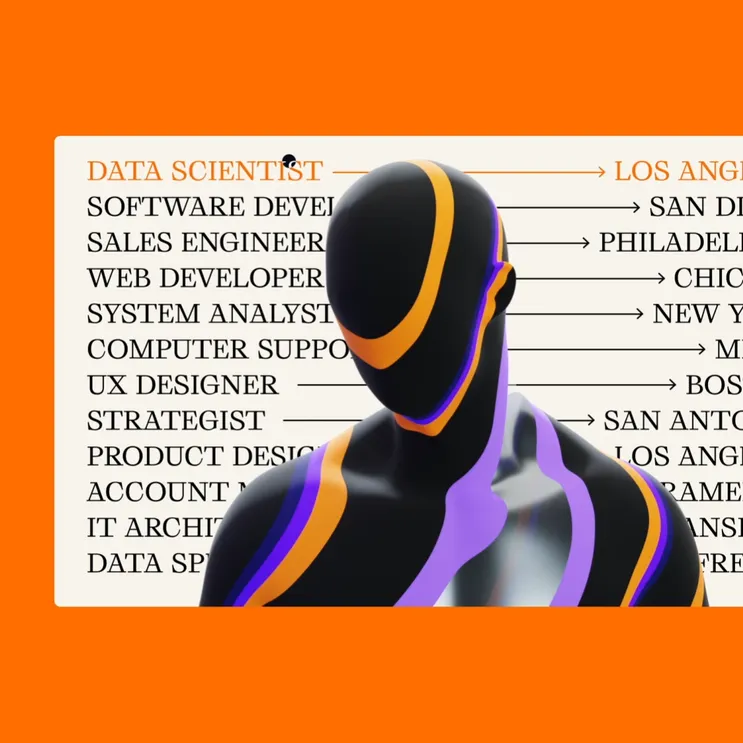Growth
8 min read
Building Your Personal Brand - Your Secret Power Move
In the business world, standing out is crucial. This is where personal branding comes into play. It’s a tool that top business leaders use to shape how people see them and their companies. This isn’t just about logos and taglines, but about values, goals, and leadership styles.
Personal branding has taken on new dimensions. LinkedIn, the world’s largest professional network, has emerged as a powerful platform for establishing and amplifying personal brands.
The rise of LinkedIn influencers has demonstrated that individual voices can sometimes overshadow even the most prominent corporate brands. Over the past few years, some professionals have managed to build substantial influence on LinkedIn, harnessing the power of personal branding to become thought leaders within their industries.
Their personal narratives, insights, and authenticity have attracted them a massive following, enabling them to shape discussions, influence trends, and even affect the course of their respective fields. This phenomenon is a testament to the power of personal branding in the digital age, showing how individuals can use it to stand out, differentiate themselves, and make their mark.
In this article, we’ll explore how personal branding works, why it matters, and look at examples of successful personal branding by leading business figures.
I. Understanding Personal Branding
Personal branding is a strategic process that involves creating and maintaining a reputation and impression of an individual. It’s essentially how people remember you. Business leaders, much like celebrities or politicians, can use personal branding to differentiate themselves in their industry, build credibility, and establish themselves as thought leaders. They convey their values, goals, and leadership style to the public through this branding process.
II. The Power of Personal Branding in Business
- Cultivating Trust: Consistency is crucial in establishing trust, and a well-crafted personal brand helps business leaders communicate this consistency to stakeholders, making them reliable figures in the industry.
- Influencing Perception: Personal branding holds the power to shape how business leaders are perceived by their teams, partners, customers, competitors, and the media. It helps them steer conversations and manage their reputations.
- Building Legacy: A well-defined personal brand aids in constructing a long-lasting legacy. Leaders are remembered not just for their financial results, but also for their unique contributions, perspectives, and leadership style that their personal brand communicates.
- Driving Growth: A compelling personal brand can help leaders secure partnerships, attract talent, and open doors to new opportunities, thereby driving the growth of the organisation.
III. Iconic Examples of Personal Branding by Business Personalities
- Steve Jobs – The Visionary: Jobs was the embodiment of innovation and perfection. His personal brand was closely tied to Apple’s brand, underlining the value of visionary thinking and relentless innovation. His iconic black turtleneck, jeans, and glasses were representative of his minimalist yet forward-thinking approach.
- Mary Barra – The Innovator: Barra, the first female CEO of General Motors, is known for her commitment to innovation and her unwavering belief in electric technology. Her brand, therefore, is one of a pioneer in an industry that’s traditionally been slow to change.
- Elon Musk – The Futurist: Musk stands out for his bold vision of the future, from space exploration to renewable energy. His audacious goals, quirky social media presence, and open communication style have helped create a personal brand that is both memorable and influential.
- Indra Nooyi – The Change Agent: Nooyi’s personal brand is tied to a strong belief in corporate responsibility and sustainable growth. As CEO of PepsiCo, she pushed the company to pursue profit with purpose, demonstrating that a successful business can also be a good global citizen.
- Jeff Bezos – The Customer-centric Leader: Bezos’ personal brand is synonymous with customer obsession. His belief that the most customer-centric company will “win” is reflected in every aspect of Amazon’s operations, showing how a strong personal brand can shape a company’s culture and strategy.
- Satya Nadella – The Empathetic Innovator: As Microsoft’s CEO, Nadella’s personal brand is characterised by empathy and relentless pursuit of innovation. His leadership philosophy of putting people first and encouraging an innovative mindset has been key in revitalising Microsoft’s image and performance.
- Gary Vaynerchuk – The Pragmatic Motivator: Vaynerchuk’s personal brand is built on practical advice, dynamic public speaking, and a strong understanding of social media. Known for his no-nonsense approach, his influential voice in digital marketing and entrepreneurship has resonated with millions, making him a sought-after figure for business advice.
- Tony Robbins – The Empowerment Titan: Renowned life and business strategist, Robbins has built a personal brand based on empowering individuals to tap into their full potential. His inspiring speeches and thought-provoking content have turned him into a symbol of motivation and personal growth.
- Arianna Huffington – The Wellness Advocate: As the founder of The Huffington Post and Thrive Global, Huffington has a personal brand deeply associated with wellness in the corporate world. She advocates for a balance between productivity and well-being, influencing many businesses to incorporate wellness into their corporate culture.
- Marie Forleo – The Entrepreneurial Coach: Forleo has established a strong personal brand through her work as a life coach, motivational speaker, and host of MarieTV. Her entrepreneurial insights and empowering mindset have made her a beacon of inspiration for aspiring entrepreneurs around the world.
IV. The Impact of Personal Branding
Each of these business leaders’ personal branding strategies has significantly influenced their companies and the business world:
- Steve Jobs’ branding helped Apple revolutionise multiple industries and build a cult-like following.
- Mary Barra’s leadership is pushing General Motors towards a more sustainable future, challenging the status quo in the automotive industry.
- Elon Musk’s personal brand has spurred interest in renewable energy and space exploration, helping his companies attract both investment and talent.
- Indra Nooyi has shown that businesses can be both profitable and responsible, influencing sustainability practices in corporations worldwide.
- Jeff Bezos’ customer obsession has been integral to Amazon’s massive growth, making it a dominant force in the global market.
- Satya Nadella’s emphasis on empathy and innovation has been crucial in Microsoft’s resurgence, proving that a people-first strategy can drive technological advancement.
- Gary Vaynerchuk’s pragmatic and energetic brand has transformed the world of digital marketing and social media strategy, influencing a new generation of entrepreneurs.
- Tony Robbins’ empowering brand has motivated countless individuals to strive for personal and professional growth, transforming the self-help and personal coaching industry.
- Arianna Huffington’s emphasis on wellness and productivity has sparked a wellness movement in the corporate world, inspiring businesses to prioritise employee well-being.
- Marie Forleo’s entrepreneurial coaching and motivational content have inspired aspiring entrepreneurs worldwide, promoting a mindset of creativity and resilience in the face of challenges.
Personal branding, therefore, is far from being just a buzzword; it’s a powerful tool that can help business leaders carve a unique space in the business landscape, influence perception, build a lasting legacy, and drive company growth.
Understanding the intricacies of personal branding and its impacts is crucial in today’s competitive business environment. As we have seen from these iconic examples, personal branding can indeed shape not only the fate of a company but also the trends and trajectories of entire industries.























